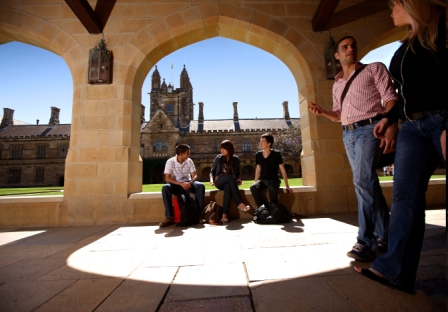Sydney Health Sciences focuses on forgotten families following workplace death
University of Sydney academics are advocating for a greater focus on the emotional, physical and financial toll of sudden workplace death on surviving families.
“The impact of a sudden, traumatic workplace death for the families of the workers killed is rarely considered beyond the days immediately following the death,” says Associate Professor Lynda Matthews from the Sydney Faculty of Health Sciences.

“This is mainly because the formal procedures and investigations are focused on making judgments about possible breaches of law. They do not recognise families’ need for timely information, support and justice.
“Despite some efforts to support them, families often experience extreme isolation.”
Associate Professor Matthews and colleagues are conducting a world-first study to identify improvements that will help to better manage the consequences for families.
This follows a 2011 pilot study which showed profound long-term suffering for families.
“Our interviews revealed psychological problems such as depression and anxiety, and long-term physical health consequences like obesity, and all of this on top of financial stress,” commented Professor Matthews.
“The impact on the children involved was particularly disturbing, with family tensions widespread and drug and alcohol use and violence common among adolescent children of deceased workers.”
This has prompted a call for an increased focus on how formal protocols respond to families following traumatic work-related death.
Participants in the previous study discussed varying interactions with authorities following the death, with some acknowledging the death in meaningful ways and others responding in ways that families perceived as hurtful.
“One thing that became very clear was that protocols for keeping families informed of developments regarding inquests, investigations and court cases were not effective and require urgent attention,” the Sydney Health Sciences professor said, adding that despite recent attempts at reform, there is little evidence of regulatory processes meeting families’ needs for information or support at any stage of the post-death process.
April 28 is the international day of mourning for workplace death. In Australia, more than 5,000 family members of workers become survivors of traumatic workplace death each year. Approximately 90 per cent of victims are male. In Canada, approximately four workers die every day, and more than 1,000 die every year because of workplace accidents or from illness caused at the workplace (Canadian Labour Congress).
Health Sciences at the University of Sydney
Sydney Health Sciences has a proud history of working with its network of researchers, industry and community partners around the world to produce some Australia’s leading clinicians and foremost thinkers in the health and social policy fields.
Sydney’s health sciences learning and teaching programs are enhanced by their research efforts and aim to develop a new generation of allied health practitioners, corporate professionals, academics and researchers who will drive change within the health sector. The faculty attracts the best and brightest students from all walks of life and gives them the opportunity to become the future leaders in health.
Disciplines at Sydney Health Sciences
- Behavioural & Social Sciences in Health
- Exercise & Sport Science
- Medical Radiation Sciences
- Occupational Therapy
- Physiotherapy
- Rehabilitation Counselling
- Speech Pathology
*

































Ask A Question
Ask us about your program of interest, or if you have a question about our services.
CONTACT US TODAY